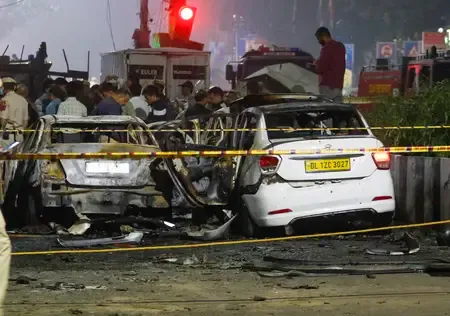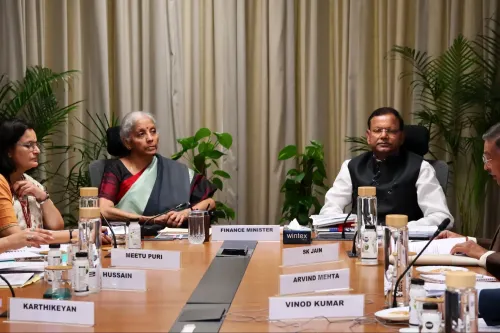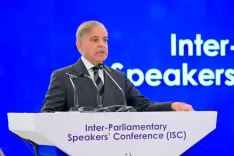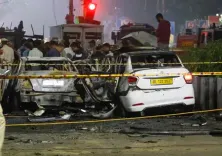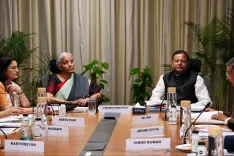What Are the 272 Road & Rail Projects Under the Sagarmala Scheme?
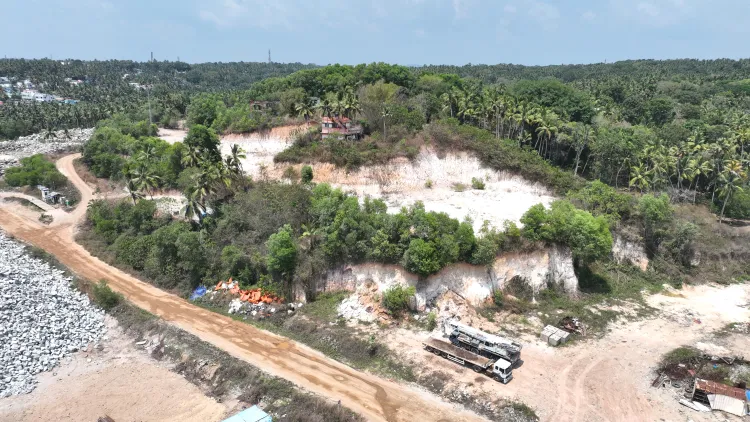
Synopsis
Key Takeaways
- 272 road and rail projects are underway under the Sagarmala Programme.
- 74 projects have been successfully completed.
- The total investment for identified projects is around ₹5.79 lakh crore.
- PPP mode is utilized for a significant number of projects.
- A Digital Centre of Excellence is being established to advance maritime technology.
New Delhi, July 29 (NationPress) There are 272 road and rail connectivity initiatives being implemented under the Sagarmala Programme by the Ministry of Road, Transport and Highways, the Ministry of Railways, prominent ports, and private sector partners, as reported in Parliament on Tuesday.
Among these 272 initiatives, 74 have been completed, 67 are currently underway, and 131 are in the development stage, stated Minister of Ports, Shipping and Waterways, Sarbananda Sonowal, in a written response in the Rajya Sabha.
A National Sagarmala Apex Committee has been established at the helm of the Sagarmala framework to provide comprehensive policy guidance and facilitate high-level coordination, as well as to review planning and implementation of the initiatives. The Ministry of Ports and Shipping conducts Maritime States Development Council (MSDC) meetings periodically to foster collaboration among various stakeholders, including central and state government ministries, the minister highlighted.
As part of the Sagarmala Programme, 839 projects have been earmarked for execution with an estimated financial outlay of around ₹5.79 lakh crore. Out of these, 119 projects costing a total of ₹2.42 lakh crore are being pursued through Public-Private Partnership (PPP), while the remaining projects are financed directly by the government using the engineering procurement and construction (EPC) model.
The Ministry of Ports, Shipping and Waterways has updated the Sagarmala Funding Guidelines to enhance financial transparency and expedite project execution for initiatives funded through the Sagarmala Scheme, the minister added.
In response to another inquiry in the Rajya Sabha, Sonowal disclosed that the ministry has formalized a Memorandum of Understanding (MoU) with the Centre for Development of Advanced Computing (C-DAC) to set up a Digital Centre of Excellence (DCoE) for the Indian maritime industry. This initiative is intended to accelerate digital transformation, drive innovation, and guide the modernization of the port and shipping sectors.
The government has introduced the SAGAR SETU platform, aiming to enhance operational efficiency, productivity, and streamline business processes within the Indian ports and shipping industry. This platform seeks to significantly decrease vessel and cargo documentation times through faster, paperless operations, Sonowal remarked.
To standardize major port tariffs, the government has launched a standardized Scale of Rates (SOR) template that offers clear and uniform definitions and conditions, a consistent framework for categorizing various port services, and a transparent presentation of tariffs, he added.



